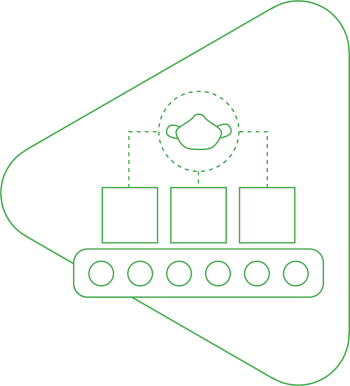Prevention
Title:
Automatized production of protective masks
Short description:
Automatized system for mass production of multi-use protective masks created from a specific woven material which protects from virus up to 99.99%.
Author:
HamiTaj Pr
Requested Budget:
11.000 USD
Time frame:
1 month

Problem: The COVID-19 pandemic has shown that personal protective equipment (PPE) is scarce in a large-scale crisis. The health systems across the globe, including Serbia, experienced a serious deficiency of PPE, especially when it comes to protective face masks. Even after the peak of the pandemic, masks are still necessary for medical workers and are being recommended for the general population as a precautionary measure in containing the spread of the virus. Making protective masks under the conventional conditions is slow and one person can make only 200 masks per day. Dependence on import masks affects their availability and price. Additionally, classic surgical masks filter up to 80% of coronavirus, while N95 masks, which are even harder to find on the market, filter up to 95% of coronavirus up to 0.3 microns in size.
Solution: The solution is automatized system for mass production of multi-use masks created from a specific woven material, which is currently not available on the market. Unlike classic cotton filters, these air filters are used for filtration of dust and smoke (hence the masks are multi-purpose) and protect up to 99.99% of viruses of 0.3 microns. One machine could produce from 15.000 to 20.000 masks per day, and one worker can manage 3 machines at once. This technology significantly reduces the cost of the finished product, where so far most of the costs were related to labor. The equipment can be used to make masks from non-woven and woven materials, from or more layers of material, which enables the flexibility of production and ensures the continuity of production even when one type of material is not available on the market. With this solution it will be possible to have a product that is of a higher quality than regular surgical masks, at a much lower price. Also, automatization will make production facilities much safer places for workers in times of pandemic.
Additional info: The efficiency of using "non-woven" material in protective masks needs to be further elaborated, as well as how these masks would be disinfected after use. The project requires obtaining certain equipment from abroad. All the masks produced within the project implementation period would be handed to the government to distribute them as needed, while afterwards the applicant would distribute them commercially.